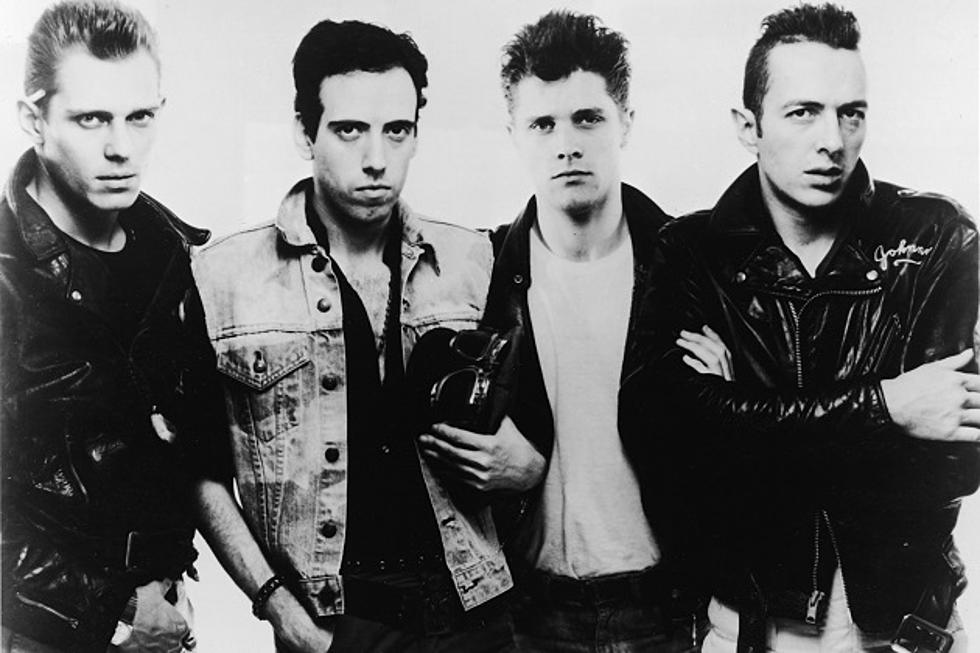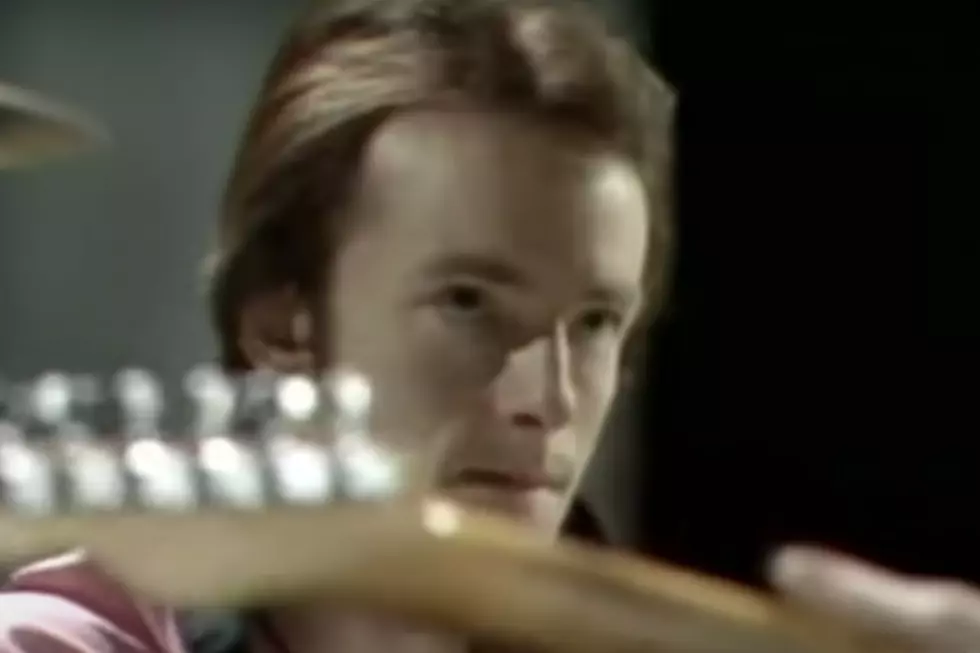
30 Years Ago: The Clash Fire Mick Jones
In 1983, “the only band that matters” was poised to become the biggest band in the world. Over the course of a few years, the Clash had gone from punk upstarts to a passionately eclectic band capable of rocking stadiums. The British quartet were riding high on ‘Combat Rock’ (their first top 10 album in the U.S.) along with a pair of hit singles, ‘Rock the Casbah’ and ‘Should I Stay or Should I Go.’ The Clash were booked to co-headline (with David Bowie and Van Halen) the US Festival and played to more than 140,000 people. And they were completely miserable.
Things had begun to disintegrate right before the release of ‘Combat Rock’ when drummer Topper Headon was fired because his heroin addiction was a drag on his precision. But the other three members (Joe Strummer, Mick Jones and Paul Simonon) soldiered on with drummer Terry Chimes, who had played on the band’s 1977 debut. The friction within the band only got worse and Chimes left the group at his first opportunity.
Jones and Strummer, the creative forces in the Clash, were heading in different directions. After six years or rampant touring and recording, Jones was ready for a break and desperately wanted an extended vacation. With the band’s commercial fortunes on the rise, Strummer wanted to capitalize on their fame with more touring (a move supported by Simonon).
“Mick was intolerable to work with by this time,” the late Strummer remembered in the Clash documentary, ‘Westway to the World.’ “He wouldn’t show up. When he did show up, it was like Elizabeth Taylor in a filthy mood.”
Jones later regretted his behavior. “I was just carried away really, I wish I had a bit more control,” Jones reflected. “You know, you wish you knew what you know now.”
Unable to plan a summer ’83 Clash tour because of Jones, and continually annoyed by his lack of care and punctuality, Strummer and Simonon weighed their options. They decided that the best move was to assume complete control and fire Mick from the band in September of 1983.
“We had to change the team because the atmosphere was too terrible,” Strummer said (as quoted in ‘The Rise and Fall of the Clash’). “We got so much work to do that we can’t waste time begging people to play the damn guitar!”
Simonon, who had altogether stopped talking to Jones, concurred: “We felt we’ve had enough, let’s kick him out and that’s what we decided on and to hell with the consequences.”
The consequences were that the Clash wouldn’t be able to survive the removal of a founding member (as well as the group’s prime melodic talent). Strummer and Simonon hired two guitarists to replace Jones and made 1985’s ‘Cut the Crap,’ an album Joe would pretty much disown. The Clash officially broke up the next year.
Meanwhile, Jones co-founded General Public (although he left before making much of a creative contribution) and then started Big Audio Dynamite, which took his music in a more urban/dance-oriented direction. When Strummer came calling, asking Jones to reform the Clash with him, Jones declined. Instead, the two collaborated on B.A.D.’s second album, ‘No. 10, Upping St.’ co-producing the record and co-writing half the songs.
Strummer and Jones remained friends and even played a few Clash songs together at a charity show. They also planned to play a full reunion gig as part of the band’s induction into the Rock and Roll Hall of Fame in 2003. Sadly, Strummer died of a congenital heart defect in December 2002, making the reunion impossible.
“Whatever a group is, it is the chemical mixture of those four people that makes a group work,” Strummer said, a few years before his death. “That’s a lesson everyone should learn: you don’t mess with it. If it works, just let it… do whatever you have to do to bring it forward, but don’t mess with it. We learned that bitterly.”
More From KKTX FM










